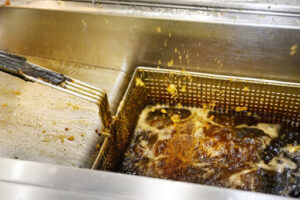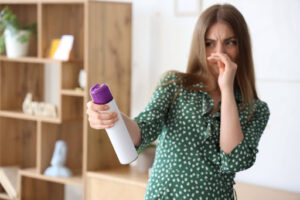Tips to Safeguard Your Home from Sewer Backups
Experiencing a sewer backup can be a homeowner’s nightmare, as it can result in significant damage and a potentially hazardous environment. Thankfully, there are effective steps you can take to protect your home from such a smelly, distressing event.
In this blog, we’ll guide you through essential sewer backup prevention techniques and how they can safeguard your home.
The Risks of Sewer Backups
A sewer backup occurs when wastewater cannot flow away from your property due to blockages or overflows in the sewer system. This can lead to a reverse flow, forcing contaminated water back through pipes and drains. Factors contributing to backups include heavy rainfalls, clogged sewer lines, and structural defects in the sewer system.
The Causes Behind Sewer Line Blockages
Several factors can lead to blockages:
- Flushing inappropriate items down toilets
- Accumulation of grease and other substances in the pipes
- Tree root intrusion into sewer lines
Understanding these common causes is the first step in sewer backup prevention.
Proactive Measures to Protect Your Home
Homeownership is a source of pride and joy for many, but it also comes with its set of challenges — some of which lurk unseen until the damage is already done. Among these hidden hazards, sewer backups stand out as particularly disruptive and distressing.
While local authorities are responsible for main sewer line issues and their maintenance, homeowners are typically accountable for the sanitary and stormwater lines within their property boundaries. This private infrastructure can become the source of a backup, necessitating proactive measures to prevent disaster. Let’s go over how to protect your home from sewer backups in more detail below.
Regular Maintenance and Cleaning
Regularly maintaining and cleaning your sewer lines is critical for sewer backup prevention. Hiring professionals like A&J Sewer Service for routine sewer cleaning can help identify potential issues before they escalate into major problems.
Install Backwater Valves
A backwater valve (or inlet control valve system) is a device installed in your sewer line. It allows waste to flow out of your home but closes if sewage attempts to re-enter, acting as a barrier against backups.
Upgrade Your Sewer System
For those in older homes, you can protect your home from sewer backups by upgrading your sewer system to include modern technologies and materials. This may include replacing old pipes or integrating better components like high-grade PVC pipes, which are less prone to breakage and clogs.
Landscape Considerations
Adjust your landscaping to promote better water drainage away from your home. Consider installing a French drain system or properly grading your yard to direct water away from your foundation.
Sump Pumps
A reliable sump pump is essential for those with basement flooding concerns. These pumps direct water away from your home’s foundation, preventing it from entering your basement and overloading your sewer system.
Smart Home Monitoring
Consider utilizing smart home technology to monitor water usage and detect unusual flow patterns in your pipes. Early detection systems can alert you to potential sewer line issues before they cause backups.
How to Handle Sewer Backups
As a homeowner, it’s important to know how to protect your home from sewer backups. But what do you do if you find yourself facing this issue? If you’re currently experiencing a sewer backup, act quickly to minimize damage and exposure to health hazards:
- Cease using all water in your home to avoid aggravating the backup.
- Contact professionals like A&J Sewer Service immediately.
- If safe, try to seal off the affected area to prevent contaminated water from spreading.
Professional Cleanup and Restoration
Handling contaminated water requires professional expertise to ensure thorough cleaning and sanitization. Professionals will not only fix the immediate problem but also recommend measures to prevent future incidents.
Schedule Your Sewer Services Today!
In today’s world, our impenetrable urban landscapes leave little green space for water absorption, which means our homes are particularly at risk during heavy rain events. The interconnected system carrying stormwater and sanitary sewer waste is complex, and when the system reaches maximum capacity, the result can be catastrophic for homeowners.
As you can see, there are proactive steps you can take to protect your home from sewer backups. Regular maintenance, traditional sewer system improvements, and a proactive approach can all play a crucial role in keeping your home dry and secure.
Don’t wait for the next round of heavy rainfall to take action; such a rain event could spell disaster for your home. Contact A&J Sewer Service today to discuss your options for septic services in Chicago, IL, and schedule a consultation to assess your home’s sewer system!
Our expertise and services are your best defense against the disruptive and damaging effects of sewer backups. Protect your home by being proactive — schedule your service today!



